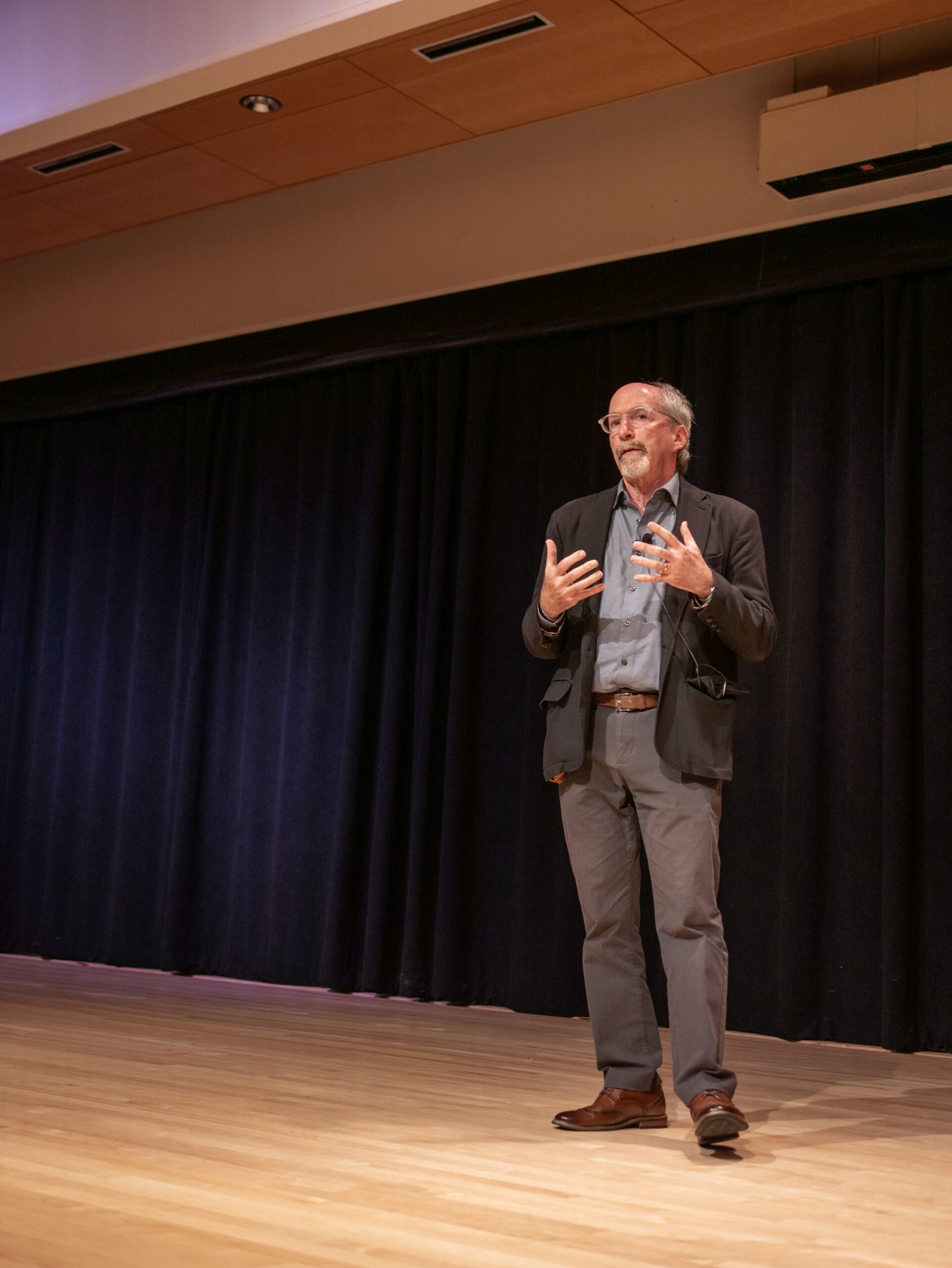Benjamin Nathans discusses the Soviet dissident movement in Alfred E. Golz Memorial Lecture
October 17, 2025
 Andrew Shi
Andrew ShiLast Tuesday, Professor Benjamin Nathans of the University of Pennsylvania spoke about the historical Soviet dissident movement, exploring its impact on present-day Russia and the post-Soviet world. The talk was the 2025 installment of the Alfred E. Golz Memorial Lecture series, established by Ronald A. Golz ’56 in honor of his late father.
Nathans’ recent Pulitzer Prize-winning book, “To the Success of Our Hopeless Cause: The Many Lives of the Soviet Dissident Movement,” which was also the namesake of his talk, explored how the standard narrative of the 1991 fall of the Soviet Union fails to consider the impact of the dissident movement’s work leading up the the historic moment.
“The story of the exit from totalitarianism did not begin in December of 1991 when Mikhail Gorbachev resigned on television,” Nathans said. “The exit from totalitarianism actually began much earlier, arguably in the mid 1950s after the death of Joseph Stalin…, enabled by the reforms that Nikita Khrushchev undertook in an attempt to get this system to recover from the trauma and the damage that the Stalinist world had experienced.”
Nathans explained this trauma as the violence experienced by the Soviet people at the hands of their government during World War II.
“You’re all probably aware that the Soviet Union suffered greater casualties than any other country that participated in the Second World War,” Nathans said. “Twenty-seven million people were killed during that conflict and just over half of them were civilians. What fewer people are aware of, though, is that the greatest violence inflicted by the Soviet state was not on foreign soldiers, it was on Soviet citizens, 18 million of whom spent time in the gulag, and roughly six million of whom were killed, either in the Gulag or … [by] negligent starvation, and some people would say deliberate starvation, in the course of the collectivization of Soviet agriculture.”
As a result of this history of state-sponsored violence, Khrushchev implemented several reforms when he came into power, attempting to create a functioning socialist society that did not arbitrarily use violence against its citizens.
“One of the unintended effects of Khrushchev’s wager that you could stop using terror against your own population and still run a socialist system was the emergence of dissent in public. This was something that nobody had foreseen, because the assumption was that the Soviet population had either been cowed or brainwashed into complete submission,” Nathans said. “Beginning in the early 1960s, people began to emerge, first as individuals, then in very tight knit groups of adult friends … who were willing to offer their own vision of what the Soviet future might look like.”
Nathans highlighted several of these men and women who led the dissident movement, one of whom was mathematician Alexander Volpin. Nathans explained how, when Volpin was arrested for publishing unflattering poems about Soviet leaders, he began to question the legality of his detention.
“While he was in detention and while he was in internal exile, Volpin did something interesting,” Nathans said. “He went to the prison library and he got himself a copy of the Soviet Constitution because he wanted to know how it was possible that he could be arrested for having written these poems and never be put on trial and yet be subject to punishment? He was astonished because he found that in the Soviet Constitution, [which] was ratified under Stalin in 1936, were some pretty impressive sounding civil liberties articles that guarantee freedom of speech, freedom of the press, freedom of assembly.”
When asked by a student about the future of the dissident movement in modern Russia, Nathans explained that he struggles to be hopeful for democracy.
“I would love to be optimistic, but it’s very difficult, not only because so many people have left the country who would have been part of the protest movement, but because the Russian state has reacted with levels of violence and intimidation, that while they don’t rise anywhere near to what we saw under Stalin, are much more lethal than [former Soviet General Secretary Leonid] Brezhnev,” said Nathans. “I don’t see the ingredients for anything like the dissident movement or a significant protest movement.”

Comments
Before submitting a comment, please review our comment policy. Some key points from the policy: